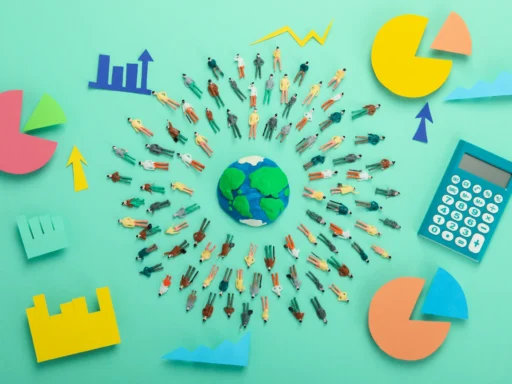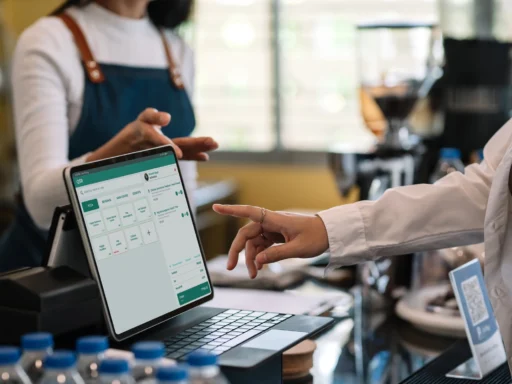In today’s competitive restaurant landscape, attracting and retaining customers is essential for sustained success and growth. As consumer preferences evolve and dining habits shift, restaurants must adopt innovative strategies to cultivate loyalty, foster meaningful relationships with patrons, and drive repeat business. Two key tools that have emerged as indispensable for growth-focused restaurant businesses are customer loyalty programs and Customer Relationship Management (CRM) systems. In this comprehensive guide, we’ll explore the importance of these tools and how they can propel your restaurant business to new heights.
Understanding the Value of Customer Loyalty
Customer loyalty is the lifeblood of any successful restaurant business. Loyal patrons not only return to your establishment time and time again but also serve as brand ambassadors, spreading positive word-of-mouth recommendations to friends, family, and colleagues. Moreover, loyal customers tend to spend more, try new menu items, and provide valuable feedback that can inform business decisions and drive innovation. By investing in customer loyalty, restaurants can cultivate a dedicated customer base, increase revenue, and differentiate themselves in a crowded marketplace.
The Role of Customer Loyalty Programs
Customer loyalty programs are a powerful tool for incentivizing repeat business and rewarding loyal patrons for their continued support. These programs typically offer perks such as discounts, freebies, exclusive offers, and rewards points that customers can redeem for future purchases. By joining the program, customers feel valued and appreciated, fostering a sense of belonging and loyalty to the brand. Moreover, loyalty programs provide restaurants with valuable data and insights into customer behavior, preferences, and spending habits, enabling targeted marketing efforts and personalized experiences that resonate with individual customers.
Leveraging CRM for Enhanced Customer Relationships
A CRM system is a strategic tool that enables restaurants to manage and analyze customer interactions and data throughout the customer lifecycle. From capturing contact information and order history to tracking feedback and preferences, a CRM system provides a centralized database of customer information that can be leveraged to build stronger relationships and drive growth. By segmenting customers based on demographics, purchasing behavior, and engagement levels, restaurants can tailor marketing campaigns, promotions, and offers to specific customer segments, maximizing relevance and impact.
Personalized Marketing and Targeted Campaigns
One of the key benefits of CRM is its ability to facilitate personalized marketing and targeted campaigns that resonate with individual customers. By leveraging data from the CRM system, restaurants can send personalized messages, offers, and recommendations to customers based on their preferences, past purchases, and behavior. Whether it’s a birthday discount, a special promotion on a favorite menu item, or a targeted email campaign highlighting new menu offerings, personalized marketing creates a sense of exclusivity and relevance that strengthens customer loyalty and drives repeat business.
Enhancing the Dining Experience
In addition to driving repeat business, customer loyalty programs and CRM systems play a crucial role in enhancing the overall dining experience for patrons. By capturing feedback and preferences through CRM, restaurants can identify areas for improvement, address customer concerns, and deliver a more personalized and memorable dining experience. Whether it’s remembering a customer’s favorite dish, accommodating dietary restrictions, or offering a complimentary dessert to celebrate a special occasion, personalized service goes a long way in fostering customer loyalty and building long-term relationships.
Measuring Success and Driving Growth
Ultimately, the success of a customer loyalty program and CRM system can be measured by their impact on business growth and profitability. By tracking key performance indicators such as customer retention rates, average spend per visit, and return on investment (ROI) from marketing efforts, restaurants can gauge the effectiveness of their loyalty initiatives and CRM strategies. Moreover, by continuously analyzing customer data and feedback, restaurants can identify opportunities for growth, innovation, and expansion, ensuring long-term success in an ever-changing industry.
Conclusion: Investing in Loyalty for Long-Term Success
Customer loyalty programs and CRM systems are essential tools for growth-focused restaurant businesses looking to cultivate loyalty, drive repeat business, and enhance the overall dining experience for patrons. By incentivizing loyalty, personalizing marketing efforts, and leveraging data-driven insights, restaurants can build strong relationships with customers, differentiate themselves in a competitive market, and drive sustained growth and profitability. In today’s dynamic restaurant landscape, investing in loyalty is not just a strategic choice but a fundamental imperative for long-term success and prosperity.






